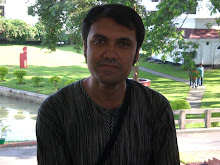Trial of ex-Bangladesh PM ruled illegal
By JULHAS ALAM, Associated Press WriterWed Feb 6, 7:02 AM ET
The extortion trial of former Prime Minister Sheikh Hasina was declared illegal by Bangladesh's High Court on Wednesday, throwing the high-profile case and government efforts to crack down on corruption into turmoil.
A two-judge High Court panel supported Hasina's lawyers, who argued that the trial should be quashed because it was being held under emergency rules, while the alleged extortion took place before the state of emergency was imposed last year.
"It's a real victory. It has ensured the supremacy of the constitution," lawyer Rafiq-ul Huq told reporters.
The Attorney General's Office quickly appealed the ruling to the Supreme Court, which is to hear the case Thursday.
If upheld, the decision could derail the government's efforts to crush high-level corruption.
"The fate of all other graft cases under this regime will be determined by the verdict in this particular case," A.F. Hassan Ariff, an adviser to the Ministry of Law, said earlier.
Huq said Wednesday there was no longer any point in proceeding with the case.
Hasina, who was prime minister in 1996-2001, has been accused of receiving about $444,000 from a Bangladeshi businessman in return for allowing him to build a power plant.
Hasina's sister, Sheikh Rehana, and their cousin, Sheikh Fazlul Karim Selim, also a Cabinet minister during her administration, are also accused in the case. Prosecutors allege all three shared the money.
Hasina and her Awami League party rejected the charges, saying they were aimed at preventing her from contesting elections expected before the end of this year.
Hasina and Selim remain in jail, while Rehana — who lives in London — is being tried in absentia.
Trying the charges under the emergency rules means the accused are not eligible to seek bail, while regular laws allow bail in such cases, lawyers said.
The defense has contended that the trial must follow standard procedures instead of a fast-track approach because it is being held in a regular court.
Bangladesh, a parliamentary democracy, has been run by a military-backed interim government since January 2007, when President Iajuddin Ahmed declared a state of emergency following the deaths of about 30 people in weeks of street protests demanding electoral reforms.
The interim government, led by Fakhruddin Ahmed, has launched a crackdown on corruption.
Another former prime minister, Khaleda Zia, a bitter rival of Hasina, is also in jail pending trial on corruption charges.

No comments:
Post a Comment